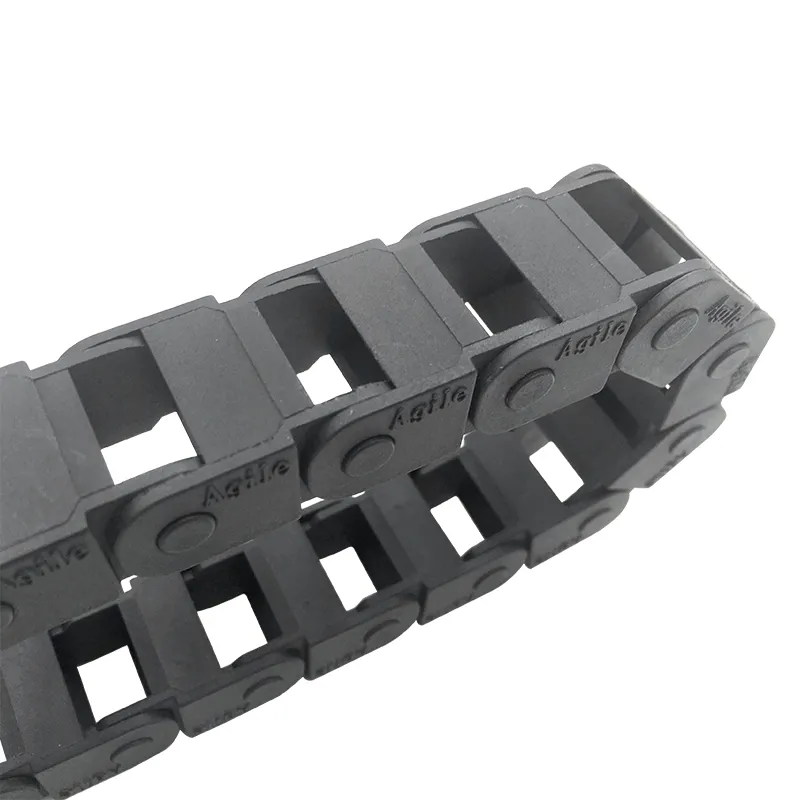Innovative Solutions for Efficient Scraper Chip Conveyor Systems
The Importance of Scraper Chip Conveyors in Modern Manufacturing
In the ever-evolving landscape of modern manufacturing, the efficiency and effectiveness of production processes are paramount. One component that plays a critical role in ensuring optimal operations within machining environments is the scraper chip conveyor. This ingenious device has become essential in the management of metal chips and scrap generated during machining processes. Understanding the operation, advantages, and applications of scraper chip conveyors can shed light on their integral role in manufacturing.
What is a Scraper Chip Conveyor?
A scraper chip conveyor is a mechanical device designed to remove metal chips, shavings, and scrap produced as byproducts during machining operations. Typically made of durable materials such as steel, these conveyors feature a series of scraping blades that move along a trough to transport waste materials away from the machining area to a designated disposal site. They are often used in conjunction with lathes, mills, and other machines, where they help maintain a cleaner work environment and prevent downtime associated with chip accumulation.
The Working Mechanism
The operation of a scraper chip conveyor is relatively straightforward. As metalworking machines process materials, they generate chips that can impede the machining process if left unattended. A scraper conveyor utilizes a series of chains and scrapers that travel through a trough, gathering waste and moving it toward a collection point. This mechanism ensures that the workspace remains free of debris, thereby enhancing the efficiency of the machines and improving worker safety by reducing tripping hazards.
Advantages of Scraper Chip Conveyors
1. Efficiency in Chip Management The primary advantage of using a scraper chip conveyor is its ability to efficiently transport chips away from the machining area. This minimizes the risk of machinery malfunction caused by chip buildup, thereby enhancing overall equipment effectiveness (OEE).
scraper chip conveyor

2. Improved Safety By removing sharp metal chips from walkways and work areas, scraper conveyors contribute to a safer work environment. This reduces the likelihood of accidents and injuries, fostering a workspace that prioritizes employee welfare.
3. Cost-Effectiveness Implementing a scraper chip conveyor can result in significant cost savings in the long run. By preventing damage to machines caused by chip accumulation, manufacturers can minimize repair costs and downtime, thus driving higher productivity rates.
4. Environmental Benefits Efficient chip management also has ecological advantages. Proper disposal and recycling of metal chips reduce waste and promote sustainable manufacturing practices. Many modern scrapers are designed to facilitate the recycling of metal shavings, contributing to a more eco-friendly operation.
Applications Across Industries
Scraper chip conveyors find applications across various manufacturing sectors, including automotive, aerospace, and metalworking industries. In automotive manufacturing, for example, they are crucial for managing the large volumes of metal chips produced during engine component fabrication. Similarly, aerospace manufacturers utilize scraper conveyors to maintain clean and efficient production lines, ensuring high standards of precision and quality.
Conclusion
In summary, scraper chip conveyors are an indispensable aspect of modern manufacturing processes. They not only contribute to improved efficiency and safety but also support sustainable practices through effective chip management. As manufacturing techniques continue to advance, the role of scraper chip conveyors will undoubtedly evolve, but their core function of enhancing operational efficiency and workplace safety will remain crucial. Investing in these systems is not just about maintaining cleanliness; it's about fostering a culture of efficiency, sustainability, and safety within the ever-competitive manufacturing landscape. By prioritizing chip management, manufacturers can position themselves for success in an increasingly complex industrial environment.








